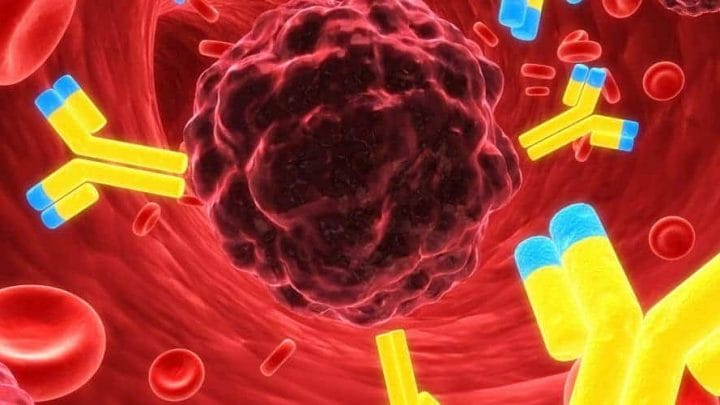
low carb diet – low carbohydrate diet rules. Does it help to lose weight?
The low carb diet is considered to be one of the most effective weight-loss diets, helping you lose weight and sculpt your figure. It is based mainly on reducing the supply of carbohydrates while increasing the amount of protein and fats. Its variation is the ketogenic diet, used not only for weight loss, but also for various diseases. What are the principles of the low carb diet, who should follow it and what can you eat on it?
Read: Ketogenic diet – can you lose weight on it?
Contents
- 1 The low carb diet – the rules
- 2 low carb diet – what to eat?
- 3 low carb diet – effects
- 4 Low carbohydrate diet – advantages and disadvantages
- 5 low carb diet – contraindications
- 6 low carb diet – facts and myths
- 6.1 The body is not able to draw energy from a source other than carbohydrates
- 6.2 Being on a low carbohydrate diet we go hungry all the time.
- 6.3 A low-carbohydrate diet is based mainly based on protein
- 6.4 In a low carbohydrate diet we must completely eliminate carbohydrates
- 6.5 The low carb diet and the ketogenic diet are the same thing
- 6.6 A diet where the main ingredient fat promotes cardiovascular disease
- 6.7 The low carb diet supports the treatment of some diseases
- 6.8 Reducing the amount of carbohydrates in the diet diet weakens the function of the thyroid gland
The low carb diet – the rules
The main principle of the low-carbohydrate diet is to limit the intake of carbohydrates, which for many people are the most important source of energy. In order to maintain energy balance, a lower amount of sugars is compensated by an increased amount of protein and fats. This is to reduce the secretion of insulin, which lowers blood sugar levels. What’s more, insulin is involved in the metabolism of proteins and fats: it inhibits lipolysis, which is the breakdown of fat, and increases the biosynthesis of fatty acids. The purpose of a diet lower in carbohydrates is to increase the secretion of glucagon, the hormone antagonistic to insulin, which stimulates gluconeogenesis and lipolysis, processes that stimulate the loss of fat tissue.

In a low-carbohydrate diet, the amount of carbohydrates should not exceed 10-15%, which, depending on body weight, that’s about 100g/day. In the case of a ketogenic diet, i.e. in order to achieve ketosis (a state in which the the body switches to using energy not from carbohydrates but from fats). from fats), this amount should not exceed 50g/day.
The main source of energy in a low-carbohydrate diet The main source of energy in a low carbohydrate diet is fat. The amount of protein should not The amount of protein should not exceed 1.5-2 grams per kilogram of body weight.
low carb diet – what to eat?
According to the assumptions, in a low carbohydrate diet, the main component should be fats. Of course the best quality ones, so it is worth to implement:
- fatty meat;
- fatty fish;
- olive oil;
- flaxseed oil;
- chia seeds;
- avocado;
- nuts;
- seeds;
- Dairy (fatty cottage and cheese);
- clarified butter;
- coconut oil.
Of vegetables, it is best to choose those low starch vegetables:
- tomatoes;
- cucumbers;
- zucchini;
- peppers;
- cauliflowers;
- cabbages;
- green leafy vegetables.
The low carb diet involves a significant restriction of fruit and cereal products such as groats, pasta and bread. It is also worth giving up leguminous plants.
It is also recommended to give up dairy and dairy products, which contain a large amount of milk sugar, namely lactose.
Interesting fact: Secret Gacy diet – what do you know about it? Is it effective?
low carb diet – effects

The low carb diet is characterized by its effectiveness in terms of losing body fat. The results can be seen very quickly, but it is worth remembering that at the beginning they are mainly related to water loss, not fat loss. However, if used for a longer period of time, you will notice
- reduction of unnecessary kilograms;
- sculpting of the silhouette;
- better mood, more vitality;
- improved skin appearance;
- better functioning of the nervous system nervous system;
- improved blood circulation.
Low carbohydrate diet – advantages and disadvantages
The low carb diet has more advantages than The low carb diet has more advantages than disadvantages, although it is not without them. We present them below.
Advantages of the low carb diet:
- affects the lowering of blood sugar levels;
- helps reduce body fat, without reducing muscle mass;
- reduces inflammation;
- may affect the reduction of bad cholesterol and triglycerides.
Disadvantages of the low carb diet:
- a noticeable drop in energy at the disadvantages of the low carb diet: a noticeable drop in energy at the beginning of the diet;
- may contribute to may contribute to acidification (if you eat too much protein). can contribute to acidification (if too much protein is consumed).
low carb diet – contraindications
The diet is not recommended for athletes who exercise often and very intensively, because they have a greater need for carbohydrates, and those suffering from hypothyroidism. People who are not sure if they can follow this diet should consult their doctor before doing so.

A low carbohydrate diet is a way A low carbohydrate diet is a way of eating that is worth adopting for more than just a few weeks. It’s best to introduce a low-carbohydrate diet gradually and then It is best to introduce a lower carbohydrate intake gradually and also gradually come off the diet. This is especially important for This is especially important for the ketogenic diet, where the amount of carbohydrates is It is especially important for the ketogenic diet, where the amount of carbohydrates is limited to a minimum, and after reaching ketosis our body After reaching ketosis our body switches to extracting energy from fats.
Remember that a low-carbohydrate diet, just like any other – will be more effective if we combine it with regular physical activity.
See here: cardio HIIT or TABATA workouts – which is better for fat burning?
low carb diet – facts and myths
There are many myths surrounding the low carbohydrate diet There are many myths surrounding low carbohydrate diet. Below we debunk some of them.
The body is not able to draw energy from a source other than carbohydrates
For many years there has been a prevailing theory that carbohydrates should be the macronutrient in your diet. They are a rich source of energy, influencing proper functioning of the body and brain. Recent research has shown However, recent studies have shown that carbohydrates do not have to be a significant diet, especially in people who lead a sedentary lifestyle. It turned out that if we are deficient in carbohydrates, our body will draw energy from other sources, in this case fats.
Being on a low carbohydrate diet we go hungry all the time.
Nothing could be further from the truth. by increasing fat intake and decreasing carbohydrates, we also limit the secretion of insulin, whose initial rise and rapid insulin secretion, whose initial rise and rapid fall is responsible for the feeling of hunger. In addition fats are more filling than carbohydrates and for a longer time provide the feeling of fullness. It happens that people on a on a ketogenic diet eat only two or three times a day, because they are not hungry.
A low-carbohydrate diet is based mainly based on protein
People who lose weight are often afraid of fats, thinking that they will affect the growth of body fat and instead significantly increase the supply of protein. Meanwhile, too much of this ingredient will be converted into glucose, causing insulin spikes to start rising. The level of protein in the diet should remain constant, so do not exceed 1.5-2 grams per kilogram of body weight.
In a low carbohydrate diet we must completely eliminate carbohydrates

The low carb diet is based on limiting carbohydrates, not their complete exclusion. Not We do not have to give up carbohydrates completely, but only change their We do not have to give up carbohydrates completely, but only change their source, which should be mainly vegetables and fruit. However, we eliminate bread, groats, pasta and other products processed foods with a high carbohydrate content.
The low carb diet and the ketogenic diet are the same thing
Although the main goal of the ketogenic diet is to achieve a state of ketosis, on a traditional low carb diet you won’t get it. The daily amount of carbohydrates on a low carbohydrate diet is 100-150g, while to achieve ketosis it should not exceed 30-50g.
A diet where the main ingredient fat promotes cardiovascular disease
For many years fat has been demonised as a product which causes diseases related to the cardiovascular system. cardiovascular diseases. Low-fat products became popular, as well as The incidence of cardiovascular disease has not decreased. The current conviction that fats are harmful to the health of the body has not decreased, but on the contrary, has become more common. Currently, the conviction that fats are harmful is becoming Currently, the belief in the harmfulness of fats is becoming more controversial However, there are more voices in favor of betting on fat instead of carbohydrates. Healthy fat, of course.
The low carb diet supports the treatment of some diseases
A diet low in The low carbohydrate diet is especially recommended for people who suffer from diabetes type 1 and 2, hypertension or irritable bowel syndrome. People with diabetes report improved well-being and reduced gastrointestinal gastrointestinal complaints.
Reducing the amount of carbohydrates in the diet diet weakens the function of the thyroid gland
People with hypothyroidism should not reduce their carbohydrate intake below 150-200g. A sudden reduction in carbohydrate intake impairs the conversion of T4 into T3. Instead, it is converted into the so-called rT3, which blocks the thyroid receptors. For this reason, a non-carbohydrate diet is not recommended for people with hypothyroidism.
Check: paleo diet for weight loss – can everyone follow it?



